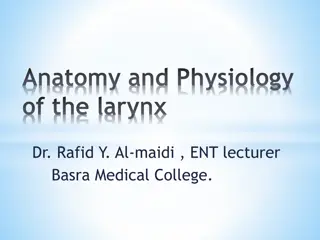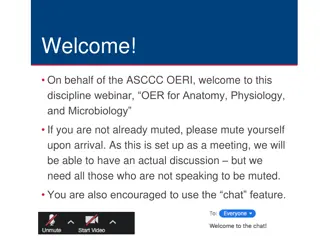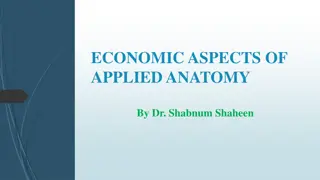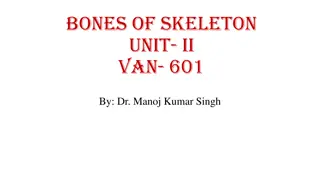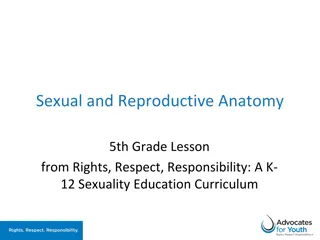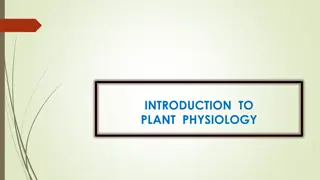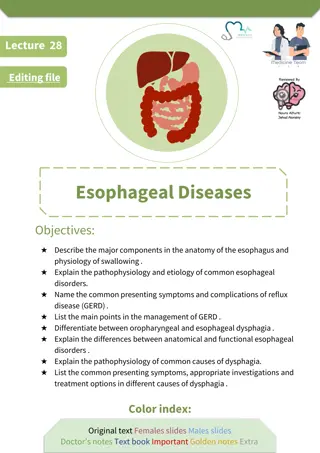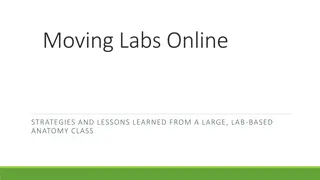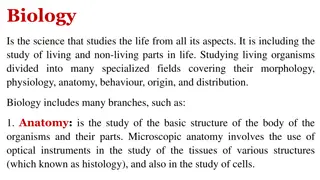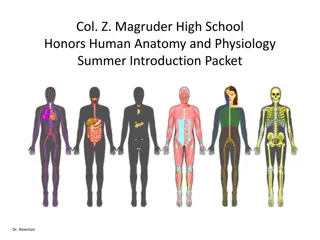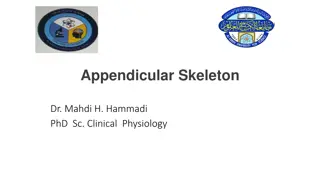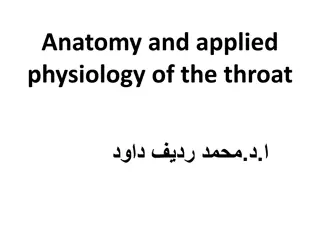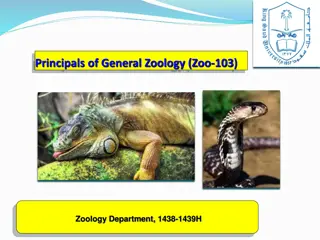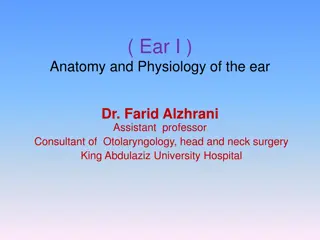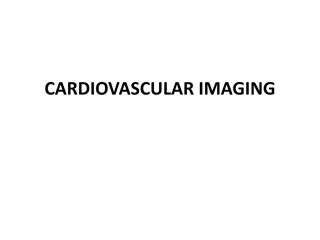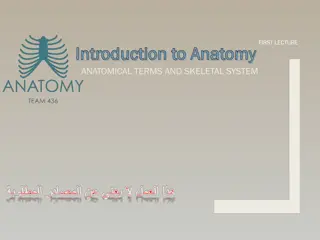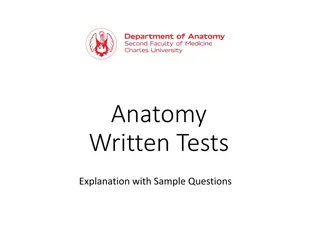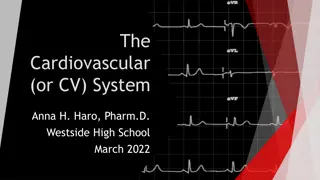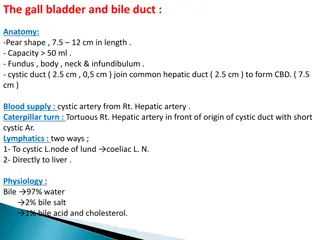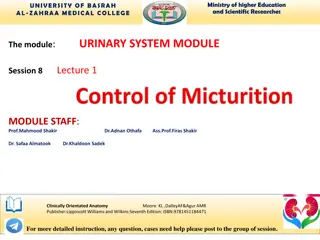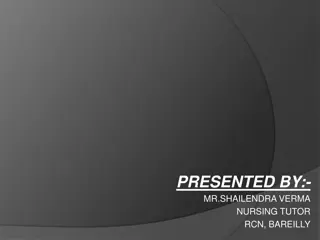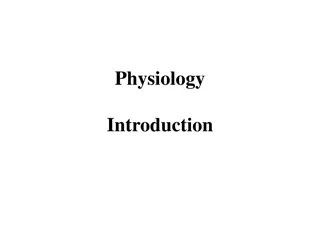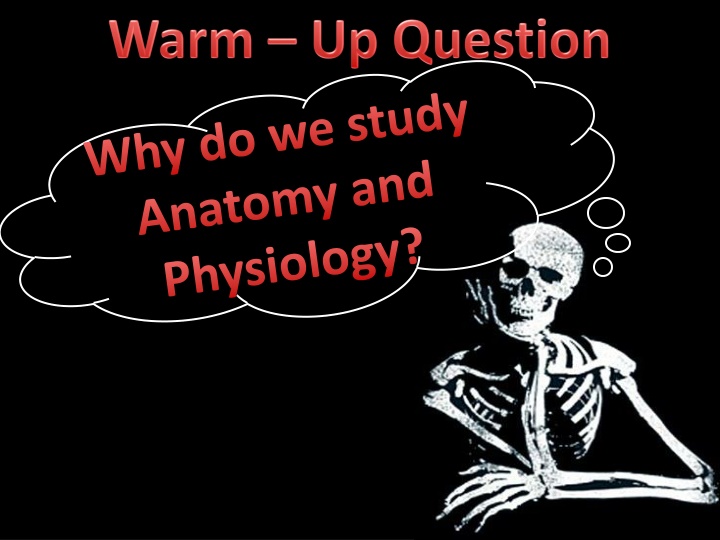
The Importance of Anatomy and Physiology
Studying Anatomy and Physiology is crucial for understanding how the human body functions. Explore the history, contributions, and key concepts of these fields to grasp the intricate workings of our bodies. Discover the fundamental relationship between structure and function to appreciate the complexity of our biological systems.
Download Presentation

Please find below an Image/Link to download the presentation.
The content on the website is provided AS IS for your information and personal use only. It may not be sold, licensed, or shared on other websites without obtaining consent from the author. If you encounter any issues during the download, it is possible that the publisher has removed the file from their server.
You are allowed to download the files provided on this website for personal or commercial use, subject to the condition that they are used lawfully. All files are the property of their respective owners.
The content on the website is provided AS IS for your information and personal use only. It may not be sold, licensed, or shared on other websites without obtaining consent from the author.
E N D
Presentation Transcript
Why do we study Anatomy and Physiology?
What is Anatomy and Physiology? View Image -An Anatomy and Physiology Introduction
HIPPOCRATES FATHER OF MEDICINE Greek physician (460 BC) Rejected idea that evil spirits and disfavor of the gods caused illness Based medical practice on observation and study of the human body
CONTRIBUTIONS Symptoms, diagnosis, treatment (pneumonia/epilepsy) Rest, healthy diet, fresh air, cleanliness, lots of exercise was essential to maintaining good health Thoughts, ideas, & feelings are from the brain, not the heart. HIPPOCRATIC OATH-patient confidentiality, never deliberately poison a patient
THE FOUR HUMORS A theory that the body had four humors: BLOOD PHLEGM BLACK BILE YELLOW BILE If one of these was out of balance, illness would occur
Anatomy Aug 18, 2015 Anatomy Aug 18, 2015 SAP 1c: EXPLAIN THE ROLE OF HOMEOSTASIS AND ITS MECHANISMS AS THEY RELATE TO THE BODY AS A WHOLE WARM UP: Define the following terms: Anatomy Physiology Homeostasis CLASSWORK: PPT notes; CLOSING: Explain the difference between positive and negative feedback
Physiology Physiology Greek meaning: the study Greek meaning: the study of ( of (ology ology) nature ( ) nature (physio physio) ) Physiology is the Physiology is the study of how the study of how the body and its parts body and its parts work and function. work and function.
WHATS THE RELATIONSHIP? Anatomy and Physiology are ALWAYS related. The parts of your body form a well- organized unit, and each of those parts has a job to do to make the body operate as a whole. STRUCTURE determines what FUNCTIONS can take place.
HOMEOSTASIS Describes the body s ability to maintain relatively stable internal conditions. Dynamic state of equilibrium. View Image
What do we need to LIVE? Maintaining Boundaries Movement Responsiveness Digestion Metabolism Excretion Reproduction Growth
View Image WHAT DO WE BALANCE?
Signs Symptoms Something that can be seen A feeling; Something that cannot be seen

